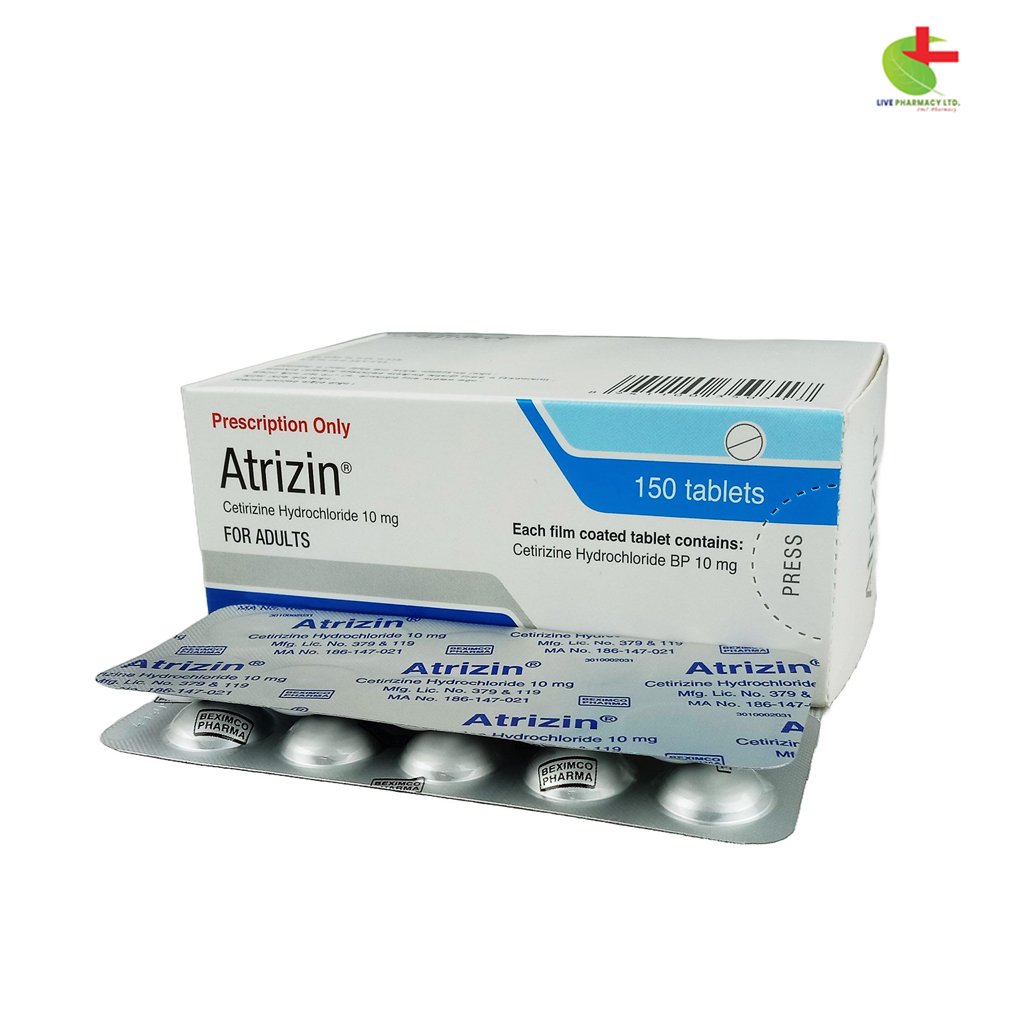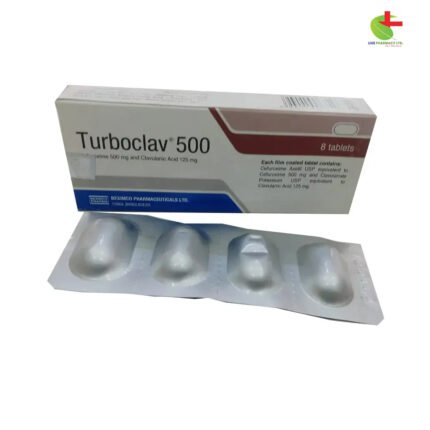Atrizin 10
30.00৳ Strip
- Atrizin is an effective antihistamine for:
- Relieving symptoms of seasonal and perennial allergic rhinitis.
- Treating uncomplicated skin manifestations of chronic idiopathic urticaria.
- Managing allergen-induced asthma.
- Contains Cetirizine Hydrochloride, which:
- Blocks histamine receptors.
- Reduces allergic reactions and inflammation.
- Causes minimal drowsiness.
- Available in both oral and injectable forms.
- Offers flexible dosing options for adults and children.
 Brand
Brand
|
Beximco Pharmaceuticals Ltd |
|---|---|
 Generics
Generics
|
Cetirizine Hydrochloride |
Indications
Atrizin is designed to alleviate symptoms associated with both seasonal and perennial allergic rhinitis. It is also effective in managing uncomplicated skin symptoms of chronic idiopathic urticaria and allergen-induced asthma.
Pharmacology
Atrizin contains Cetirizine Hydrochloride, a highly selective H1 receptor antagonist with minimal anticholinergic and antiserotonic activity. It significantly reduces the early phase of allergic reactions by inhibiting histamine and decreases inflammation by limiting cell migration and mediator release. Cetirizine is well-tolerated with negligible drowsiness and behavioral effects. It achieves peak plasma concentrations within an hour, with a plasma half-life of approximately 11 hours, and consistent absorption across individuals.
Dosage & Administration
Oral Dosage:
- Adults and Children 6 Years and Older: 1 tablet or 2 teaspoonfuls daily, or 1 teaspoonful twice daily.
- Children 2-6 Years: 1 teaspoonful once daily or 1/2 teaspoonful twice daily.
- Children 6 Months to 2 Years: 1/2 teaspoonful once daily, with a possible increase to every 12 hours for children 12-23 months.
Injectable Dosage:
- Adults and Adolescents 12 Years and Older: 10 mg intravenously once every 24 hours as needed for acute urticaria.
- Children 6 to 11 Years: 5 mg or 10 mg intravenously based on symptom severity.
- Children 6 Months to 5 Years: 2.5 mg intravenously.
Note: Dosage should be adjusted based on medical advice.
Interaction
No significant drug interactions have been reported with Theophylline, Azithromycin, Pseudoephedrine, Ketoconazole, Erythromycin, or other medications.
Contraindications
Atrizin is contraindicated in individuals with hypersensitivity to Cetirizine or hydroxyzine.
Side Effects
Common side effects include somnolence.
Pregnancy & Lactation
Cetirizine Hydrochloride is classified as Pregnancy Category B by the US FDA. Due to the lack of well-controlled studies in pregnant women, it should be used only if absolutely necessary. Cetirizine is excreted in breast milk, so caution is advised when administering to nursing mothers.
Precautions & Warnings
Patients should exercise caution when driving or operating heavy machinery.
Use in Special Populations
- Hepatic or Renal Insufficiency: Reduced clearance and increased AUC and half-life in patients with hepatic or renal impairment. Plasma levels remain unaffected by hemodialysis.
- Pediatric Use: Safety established for children aged 6 months to 5 years.
- Elderly Use: Clearance is decreased, proportional to reduced creatinine clearance.
Therapeutic Class
Sedating Anti-histamine
Storage Conditions
Store in a dry place, away from light and heat. Keep out of reach of children.













Reviews
There are no reviews yet.